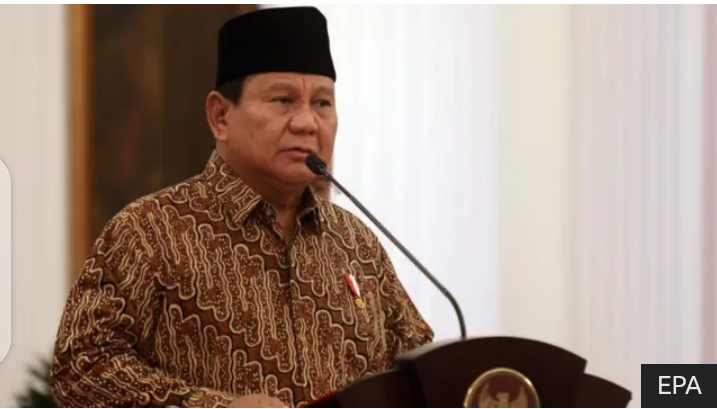Indonesia’s New Leader Prabowo Subianto Sworn In, Unveils Largest Cabinet In Decades.
Former military general Prabowo Subianto has officially been sworn in as Indonesia’s president, marking a significant new chapter for the Southeast Asian nation. In his inauguration on Sunday, Prabowo introduced the largest cabinet Indonesia has seen since the 1960s, a team designed to tackle the country’s pressing challenges.
At 73, Prabowo finally ascended to the presidency after two previous failed bids, securing over 58% of the vote in February’s election against two rivals. His victory concludes the era of Joko Widodo, known as Jokowi, who led Indonesia through a decade of economic growth and substantial infrastructure development.
In his inauguration speech, Prabowo pledged to fight corruption and poverty, declaring himself a president for all Indonesians. “We must always realise that a free nation is where the people are free,” he proclaimed. “They must be freed from fear, poverty, hunger, ignorance, oppression, and suffering.” His speech, fiery and impassioned, lasted almost an hour and reflected his determination to address the nation’s most urgent issues.
Joining him at the swearing-in was his vice-president, Gibran Rakabuming Raka, Jokowi’s eldest son, further linking the new administration to the previous leadership.
Later that day, Prabowo announced a cabinet consisting of 48 ministers and 58 vice-ministers, a substantial increase compared to the 34 ministers and 30 vice-ministers under Jokowi. Among the re-appointments were key figures like Finance Minister Sri Mulyani Indrawati and Chief Economic Minister Airlangga Hartarto, signalling continuity in Indonesia’s economic policies.
In his speech, Prabowo acknowledged the global challenges Indonesia faces, highlighting the importance of stability. “Challenges, hurdles, and threats that Indonesia is facing amid global dynamics and turmoil are not light matters,” he warned.
However, the size of the cabinet has raised concerns. Some observers, such as public policy scholar Lina Miftahul Jannah, noted that an enlarged cabinet might lead to inefficiencies and complicate bureaucracy. “A ‘fat cabinet’ can lengthen and complicate bureaucracy,” she explained, adding that reorganising ministries could be resource-intensive in both time and money.
Despite these concerns, Prabowo appears committed to fostering unity and focus within his new administration. The cabinet will be sworn in on Monday, followed by a three-day retreat at a military academy in central Java. According to the migrant protection minister, Abdul Kadir Karding, the retreat is designed to bond the team and ensure a shared understanding of Prabowo’s vision. Ministers and their deputies will spend the time sleeping in tents, underscoring the disciplined and team-oriented approach Prabowo is keen to promote.
As Indonesia embarks on this new era, all eyes will be on how Prabowo’s administration navigates the country through its next phase of growth and governance.



